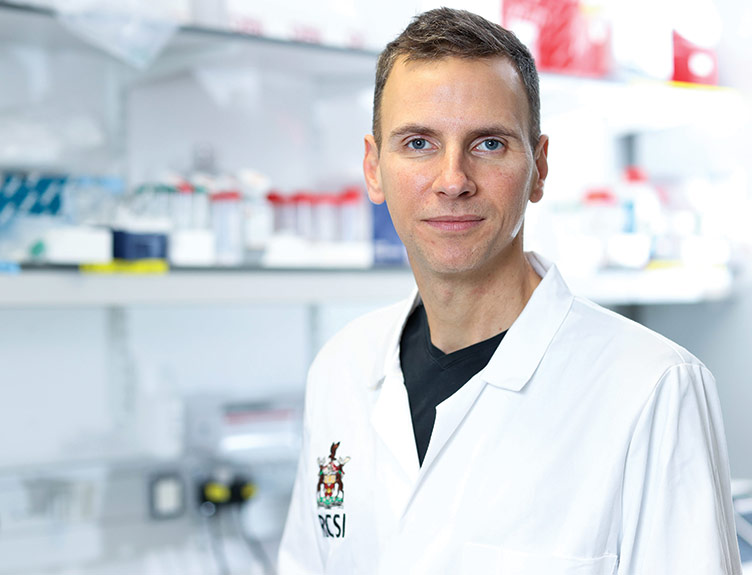RCSI malaria vaccine undergoes first human trial
A malaria vaccine developed by researchers at RCSI (Royal College of Surgeons in Ireland)'s Department of International Health & Tropical Medicine, in collaboration with the University of Oxford, has recently undergone its first human trials.
The clinical and immunological responses to 24 volunteers have proved the vaccine safe, well tolerated and the immunology results are very promising. To coincide with World Malaria Day (Friday, 25 April), scientific leaders in vaccine development from academia, industry and the public sector will meet at RCSI for the first meeting in Dublin of the board and scientific advisory committee of the European Vaccine Initiative (EVI) where they will plan future funding and further research into the area of vaccine research.
This malaria vaccine is envisaged as a valuable addition to malaria control and forms part of the World Health Organisation (WHO)'s malaria control roadmap. During these trials, funded by the EVI, volunteers are exposed to malaria after vaccination to assess vaccine effectiveness. Combining this vaccine with others in development may lead to a vaccine that could prevent malaria, which will have a huge impact on human health as a result. The vaccine will now progress to phase two trials at the University of Oxford.
The WHO estimates that 207 million cases of malaria occurred globally in 2012 and 627,000 malaria deaths. Most cases (80%) and deaths (90%) occurred in Africa and most deaths (77%) were in children under five years of age.
The EVI Scientific Advisory Committee (SAC) will convene on Monday, 28 April. This committee makes recommendations to the EVI Board on scientific direction and technologies as well as on the choice of vaccines candidates for funding. The EVI Board will subsequently hold their meeting on Tuesday, 29 April. Both are being held at the RCSI campus on St Stephen's Green.
Speaking about these meetings, Professor Sam McConkey, Head of the RCSI Department of International Health & Tropical Medicine and member of the EVI SAC said, “These meetings provide an excellent opportunity to discuss current and future orientations for translational research, getting new ideas in a laboratory to safe effective products in human clinical trials, the core area that EVI works in, while making important strategic decisions on planning for funding. It will be a pleasure to welcome our European colleagues both to Dublin and to the College for this milestone event.”
Dr Odile Leroy, Executive Director of EVI, said, “Nothing would have been possible without the support of Irish Aid. Since its inception EVI has contributed to the development of 32 malaria vaccine candidate formulations with 16 vaccine candidates being advanced into phase I clinical trials, three of which have been transitioned for further clinical development in sub-Saharan Africa.”
EVI was initially established in 1998 with seed funding from the European Commission and focused exclusively on malaria. Over the years EVI´s mandate has grown and has the principal objective to develop effective, accessible, and affordable vaccines against malaria and other diseases of poverty. EVI's vision is 'a world free of the intolerable burden of diseases of poverty within the coming decades.
RCSI is a constituent member of this organisation which is funded also by Irish Aid. Irish Aid is the Irish Government's programme for overseas assistance. It is managed by the Development Cooperation Division of the Department of Foreign Affairs and Trade.



